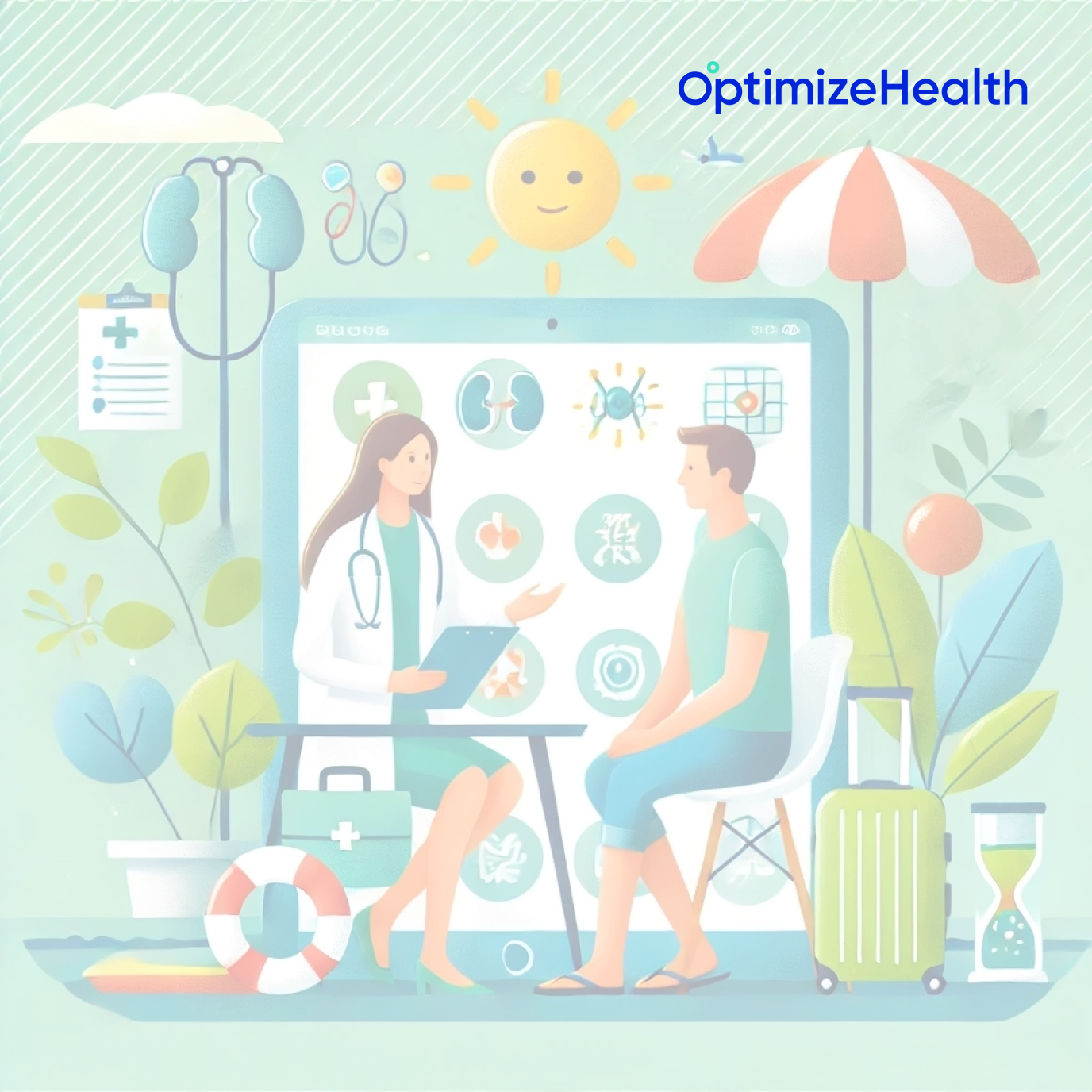Summer is a season of relaxation, vacations, and outdoor activities, which often leads to a more laid-back mindset. While this is a wonderful time for many, it can present challenges for maintaining regular healthcare routines, especially for those managing chronic conditions. In this blog, we explore the importance of enhancing patient communication and the pivotal roles of Remote Patient Monitoring (RPM) and Chronic Care Management (CCM) during the summer months.
The Impact of Summer Vacations on Healthcare Appointments
Provider and Patient Time Off: Many healthcare providers take vacations during the summer, reducing the number of available appointment slots. This can make it challenging for patients to schedule timely appointments, especially for follow-ups or routine check-ups. Patients also tend to travel or take time off, leading to increased cancellations or no-shows, which can disrupt regular care routines.
Strategies to Mitigate Scheduling Challenges: Encouraging both providers and patients to schedule appointments well in advance of the summer months can help ensure that care continuity is maintained. Offering flexible appointment times, including early morning or late afternoon slots, can accommodate varying summer schedules. Providers may also consider telehealth options to provide care to patients who are traveling or have difficulty coming into the office.
Communication is Key: Proactive communication is essential. Remind patients of the importance of maintaining their health routines, even during summer vacations. This includes staying hydrated, adhering to prescribed medications, and following dietary recommendations. Using automated systems to send reminders for upcoming appointments or follow-ups on missed ones can help reduce no-show rates and ensure patients don’t miss critical care appointments.
The Role of RPM and CCM in Summer Care
Continuous Monitoring Amidst a Busy Lifestyle: Summer brings about changes in routines, with patients traveling or spending more time outdoors. RPM provides a seamless way to monitor critical health metrics without requiring frequent in-person visits. For instance, a patient with hypertension can have their blood pressure continuously monitored, ensuring any irregularities are addressed promptly. Similarly, CCM offers consistent care coordination, making sure any changes in a patient’s condition are managed proactively, which is vital for patients with chronic conditions like diabetes or heart disease.
Supporting Clinical Monitoring When Providers Are Away: When schedules are busy and in-office days are reduced, RPM and CCM offer invaluable resources to manage patient care. These programs allow clinicians to maintain ‘eyes and ears’ on their patients even when they are not physically present. This continuous monitoring is beneficial for clinical outcomes, providing peace of mind to both providers and patients that health metrics are being watched and managed in real-time.
Addressing Seasonal Health Challenges: Summer can introduce specific health challenges such as dehydration, heat-related illnesses, and dietary indulgences. RPM devices can track vital signs and alert healthcare providers to potential issues like dehydration or elevated blood pressure, allowing for timely interventions. CCM provides personalized guidance on maintaining a balanced diet and staying hydrated, crucial when patients might be enjoying summer barbecues or beach outings.
Maintaining Mental and Emotional Well-being: The flexibility of summer schedules can disrupt regular routines, impacting mental health. RPM helps monitor physical activity levels, encouraging patients to maintain a healthy lifestyle. CCM provides emotional support, helping patients navigate the potential stress or loneliness that can accompany the season’s changes. For elderly patients or those with mobility issues, summer can be a time of increased isolation. CCM programs help by scheduling regular check-ins, ensuring these patients remain connected and supported.
The Bottom Line
Increasing patient communication and support through RPM and CCM during the summer months is not just about maintaining medical care—it’s about enhancing the quality of life. By providing consistent monitoring and personalized care, these programs ensure that patients can enjoy the season with confidence, knowing that their health is being managed effectively. This blend of technology and compassionate care makes RPM and CCM indispensable tools for modern healthcare, especially during the dynamic summer months.
